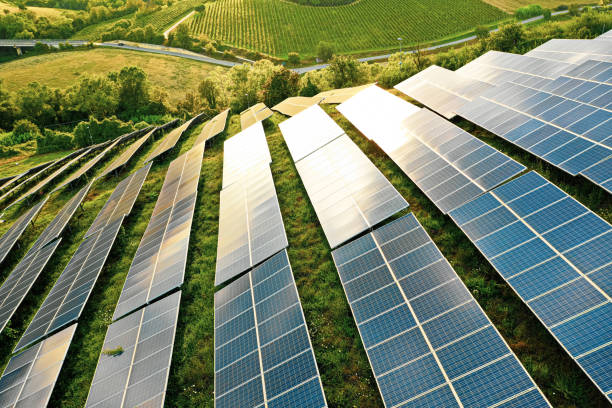
IoT, or the Internet of Things, allows smart home and office appliances like temperature control systems and security systems to communicate via the internet. Modern solar systems will be able to manage electricity costs more efficiently and economically with this technology. It could also automate many time-consuming processes, making it easier to transition to renewable energy.
IoT-powered Solar Energy Systems
If your home or workplace is connected to an extensive network of interconnected devices, it is easier for you to optimize your solar energy system’s productivity, capacity and output. This is how it works.
- High-tech sensors and intelligent connected gadgets gather massive amounts of energy data in real time and send it to the power grid for analysis and storage.
- These sensors provide insight into how to improve safety, productivity, and optimal use of resources.
- IoT-based solar power monitoring devices also collect usage data, which can help understand energy consumption patterns and optimize usage.
- IoT innovative solar systems detect movement around IoT panels and can prevent theft and vandalism.
- IoT in solar energy has two more significant advantages–operators can better manage the energy demand, and power companies can leverage the data from IoT-based solar systems to distribute energy more strategically.
IoT’s Benefits in Generating Renewable Energie
Solar-powered IoT could provide us with reliable and efficient power supplies in the next few years. These are some of the tangible benefits that IoT can bring to your business:
Automating Processes
IoT can be used to improve the use of solar energy as it provides real-time information. IoT-enabled automation can reduce operating costs, increase power output, and improve safety in power plants and solar power generation systems. Many power plants have used IoT to produce the highest amount of solar energy. This is done by having the panels align at 90 degrees to the sun using real-time data from the boards.
Cost-effectiveness
Utility companies can monitor the power consumption of all homes and commercial properties that use their energy using IoT-powered tools. These insights enable electricity providers and utility companies to make better business decisions based on data and optimize their resources. Power companies can, for example, adjust the supply to meet consumer demand. Power suppliers can reduce electricity wastage and make money.
Seamless Grid Management
IoT technology can be a boon to companies that manage the electrical grid, particularly when it comes time to include more renewable energy systems in the grid. Utility companies can gain an accurate picture of their power consumption by placing sensors at different points in the distribution lines or substations. Utility companies can use this information to make the best decisions about load switching, network configuration, voltage control, and other matters.
Utility companies can also use power consumption data to determine whether they should upgrade or build new infrastructure for power distribution.
Enhanced Safety
Grid companies can also use IoT to ensure grid safety and constant energy supply. The sensors can alert grid companies in real time about power outages. The power companies can detect a damaged line in real-time and shut off power to prevent wildfires, electrocutions, or other dangers.
Conclusion
Look no further if you’re looking for intelligent ways to improve your solar energy system via IoT. We can provide advice and support regarding the adoption and implementation of solar energy systems for both homes and offices. Genus can assist you in assessing solar energy requirements and creating a system that makes the most of this technology.
